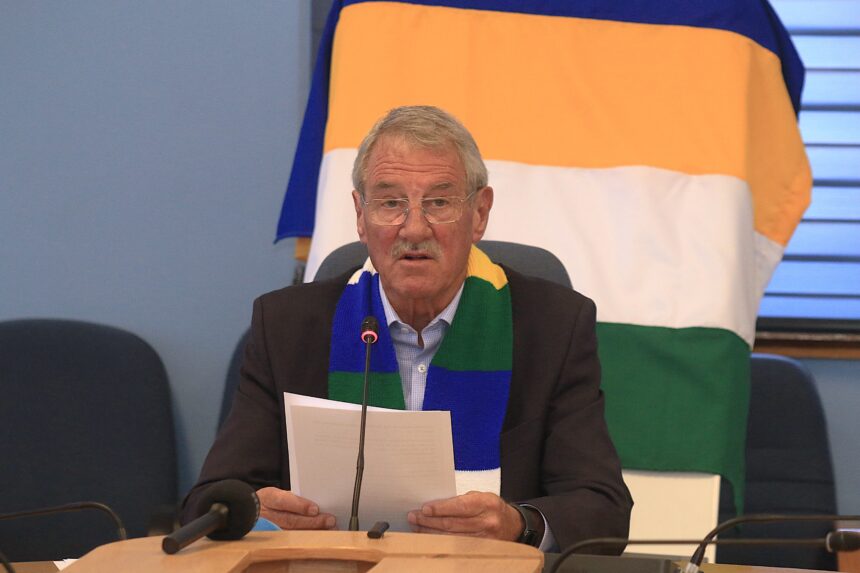Iuze Mukube
The Republican Party has rejected an agreement signed by President Nangolo Mbumba in New York last week.
The political party argues that Mbumba’s unilateral decision to bind the country to the agreement goes against the democratic ideals of public engagement and consultation.
The party’s president, Henk Mudge, addressed the matter at a press conference yesterday.
He said while everything in the initial draft of the Pact for the Future is “too beautiful for words”, the reality lies in what comes with it.
Chiefly, he examined portions of the pact that point towards a future dictated by the world’s self-appointed overlords at the UN.
“These are unelected bureaucrats, making decisions about our country and our sovereignty. The pact even makes provision for a declaration by the UN whether one exists or not, and they can do it without our consent,” Mudge said.
The veteran politician, said one such clause states that “Everyone will be expected to have a biometric digital ID that marks them, not just as citizens of the individual countries, but as global citizens.”
Mudge further claimed the globalists are now attempting to establish the “one-world order, one-world government, one-world religion, and one-world currency that have been discussed.”
He said the President had no authority whatsoever to sign the Pact for the Future “because it will have massive consequences for us as a nation, and will without doubt lead to the end of our democracy.”
“An agreement of this magnitude was never supposed to be decided upon by only the President or even his Cabinet but had to be submitted to Parliament for the Republic of Namibia to ratify.
I would like to challenge our Head of State to reveal to the Namibian nation what he agreed upon at the Pact Summit at the United Nations. But I am confident that he will not do it because that will be the final straw that will break the back of Swapo once and for all,” he declared.
Mudge stated, “We will not allow anybody, not the globalists, not the World Economic Forum, not the World Health Organisation, and not the United Nations, to undermine our sovereignty as a nation and prescribe to us to do anything that is not for the sole benefit of our Namibian nation.”
Speaking during the 79th session of the United Nations General Assembly, Mbumba said Namibia’s interest in the Pact for the Future is rooted in the recognition that the global institutions, established in 1945, have failed to adequately reflect African needs and aspirations.
Mbumba called for structural changes to address today’s pressing global challenges, calling for greater representation and equity for African nations on the world stage.
“At the heart of our quest to rebuild trust in multilateralism is a legitimate demand to be recognised as equal partners – partners who can be trusted. (We must be equal) partners in the fight against war, poverty, global injustice and inequality,” he said.
-mukubeiuze@gmail.com



